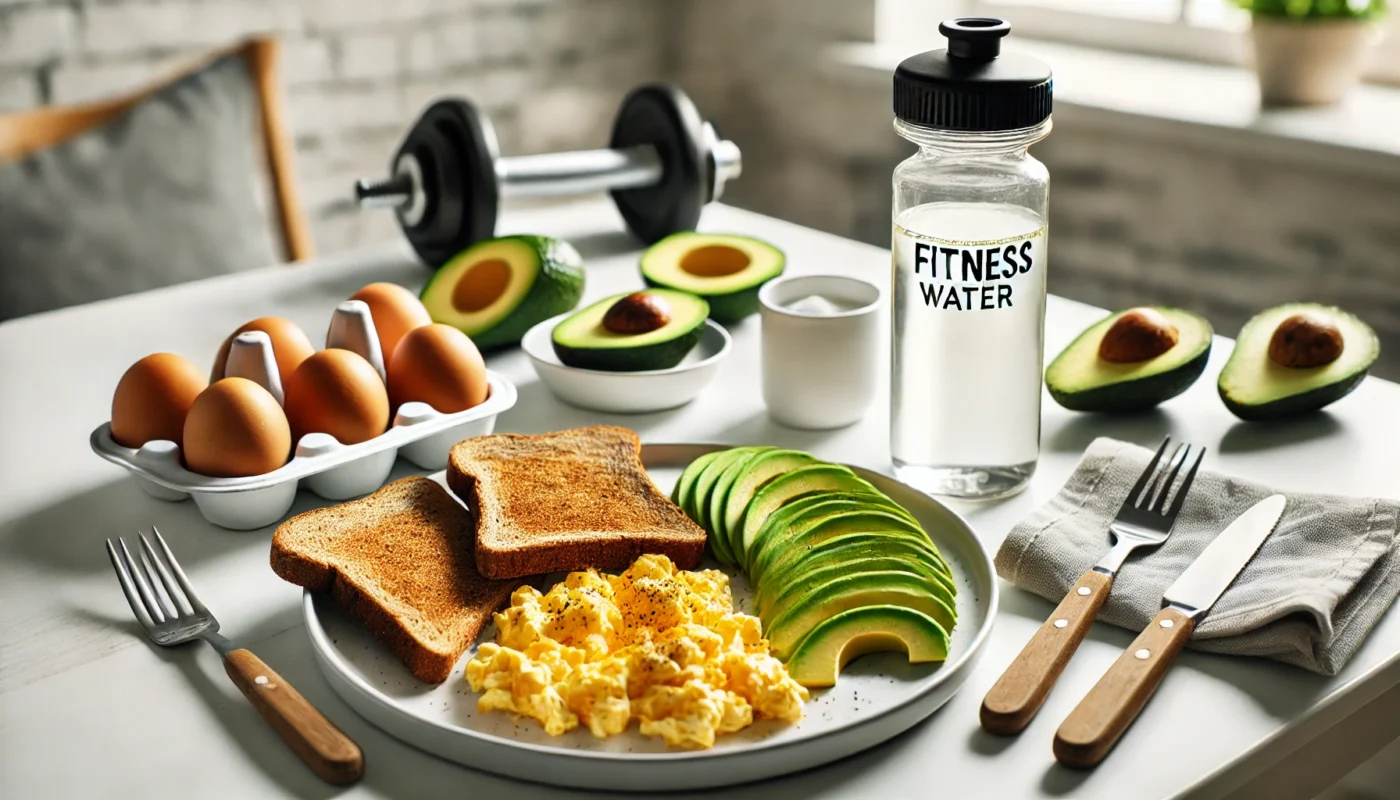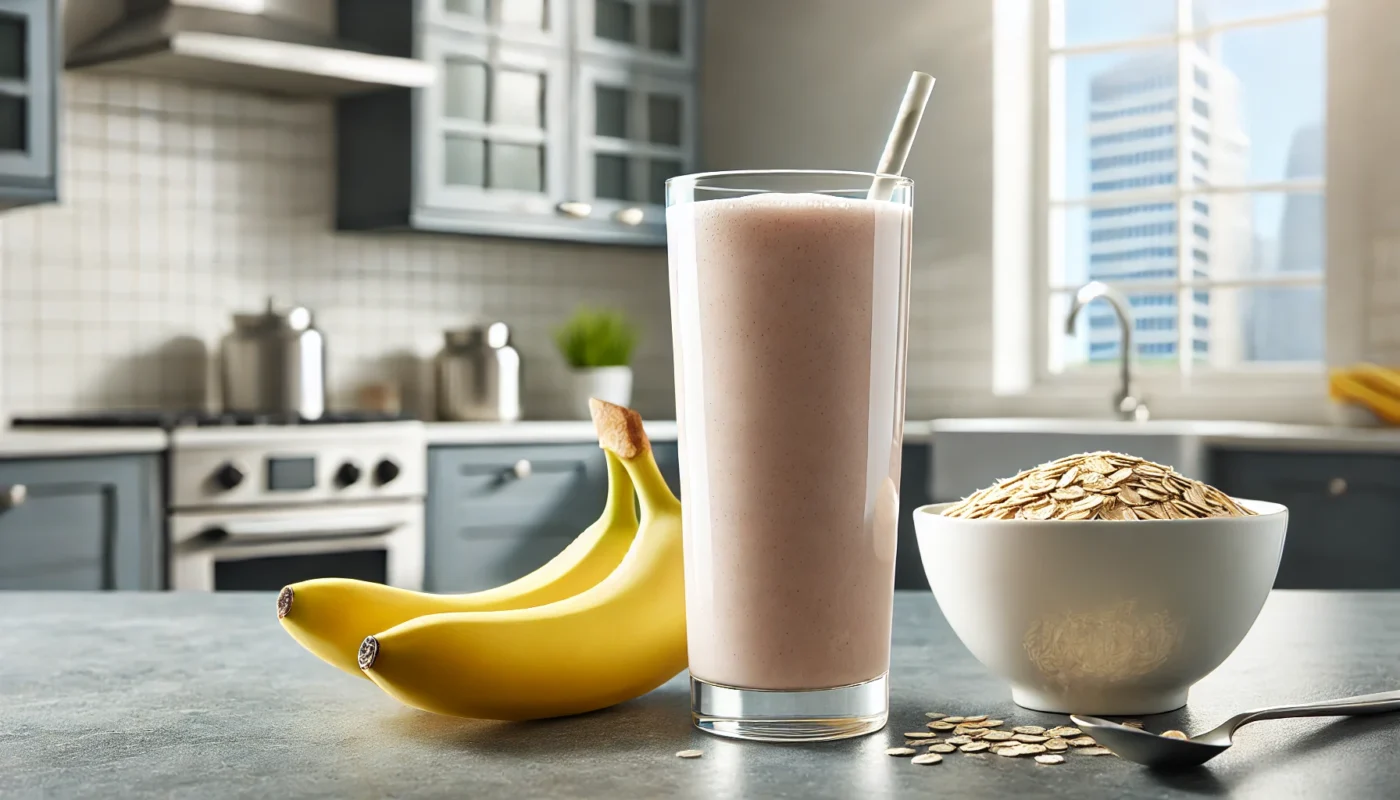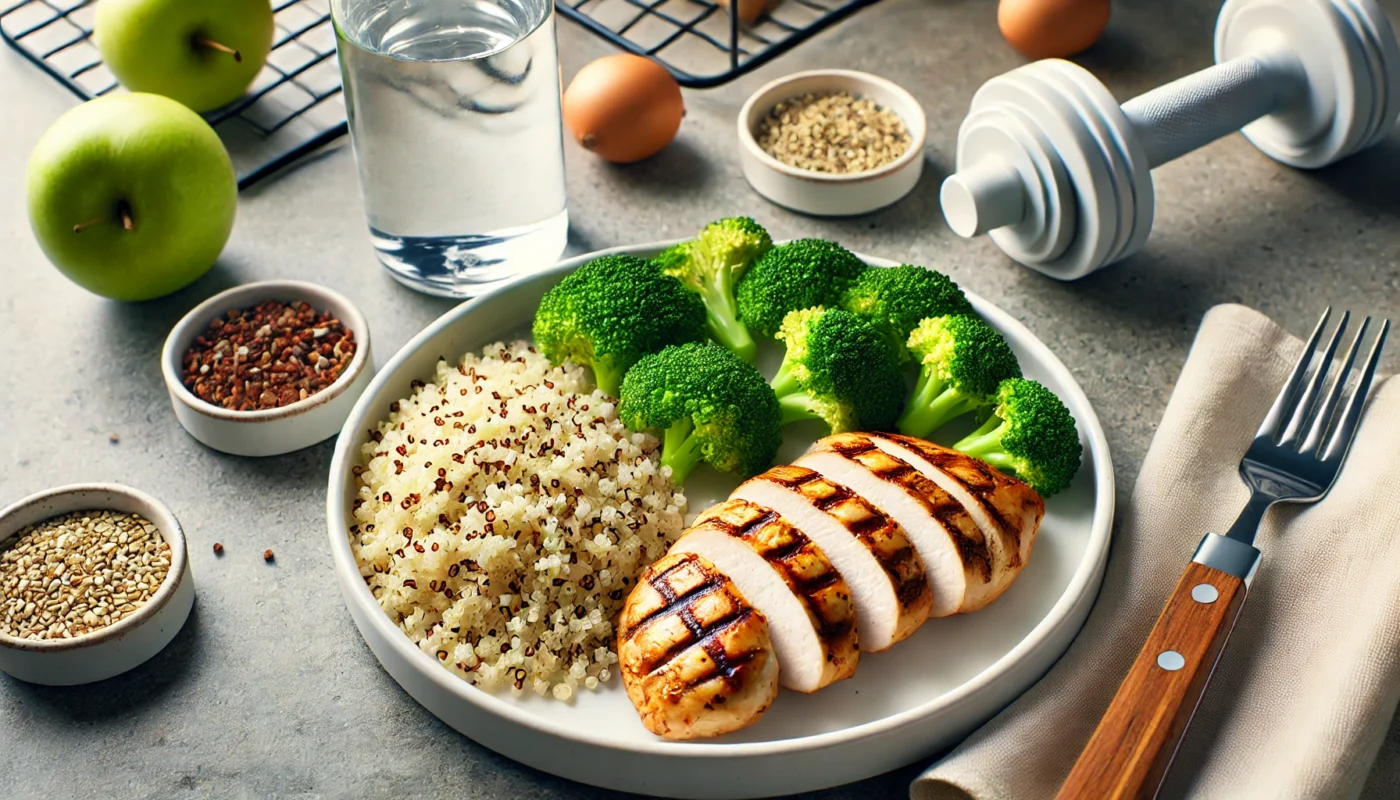In the quest for optimal health and fitness, protein often takes center stage. This essential macronutrient plays a pivotal role in muscle repair, growth, and overall body functioning. However, the timing of protein intake can significantly impact its effectiveness. In this article, we will delve into the intricacies of protein timing and how it can enhance your workouts and overall health. Whether you’re a fitness enthusiast, health aficionado, or someone managing a medical condition, understanding the nuances of protein intake can be transformative.

The Science Behind Protein Timing
Protein timing refers to the strategic consumption of protein at specific times to maximize its benefits. Research indicates that the timing of protein intake is just as crucial as the quantity consumed. When it comes to exercise, consuming protein at the right times can enhance muscle synthesis, aid recovery, and improve performance.
You may also like: Best Pre-Workout Foods for Energy Boost
Understanding Protein Synthesis
Protein synthesis is the process where cells build proteins, crucial for muscle repair and growth. Timing your protein intake can influence the rate and efficiency of this process. Studies show that consuming protein around workout sessions can significantly enhance muscle protein synthesis. This means strategically planning your meals to coincide with your workouts can lead to better muscle gains.
The Anabolic Window: Myth or Reality?
The concept of the “anabolic window” suggests a critical period post-exercise where protein intake can maximize gains. While some experts argue this window is narrow, others believe its benefits extend for hours. Recent research indicates that while immediate post-workout protein intake is beneficial, muscle sensitivity to protein can last longer, offering more flexibility in timing.
Hormonal Influence on Protein Timing
Hormones like insulin and growth hormone play roles in how effectively your body utilizes protein. Protein intake can stimulate insulin release, enhancing nutrient absorption. Understanding the hormonal interplay with protein timing can help optimize muscle growth and recovery. Balancing protein intake with carbohydrate consumption can further influence these hormonal responses.
Protein Before Cardio: Does It Matter?
The debate around whether to consume protein before cardio is ongoing. While some argue that protein consumption before cardio exercises can enhance performance by providing a steady release of amino acids, others believe it’s more beneficial post-workout. Current research suggests that consuming a moderate amount of protein before cardio can prevent muscle breakdown and promote muscle retention, particularly during prolonged cardio sessions.
Benefits of Pre-Cardio Protein Consumption
Consuming protein before cardio can provide a source of amino acids that support muscle retention. This is particularly useful during long-duration cardio sessions, where muscle catabolism might occur. By ensuring a steady supply of these building blocks, you can protect muscle tissue and maintain strength.
Protein and Fat Oxidation During Cardio
Protein intake before cardio can also influence fat metabolism. Some studies suggest that a protein-rich meal can enhance fat oxidation, potentially leading to better fat loss outcomes. Balancing protein with carbohydrates can also ensure sustained energy levels during your cardio workout.
Timing Protein for Different Cardio Intensities
The intensity of your cardio session can dictate your protein needs. For low-intensity cardio, a small protein snack might suffice, whereas high-intensity sessions may require more substantial protein intake. Tailoring your protein consumption to match the demands of your workout ensures you get the most benefit.
How Much Protein Should You Eat Before a Workout?
Determining the right amount of protein intake before a workout can be tricky. It’s essential to consider factors such as the type and intensity of exercise, as well as your individual fitness goals. A general guideline is to consume approximately 20-30 grams of protein one to two hours before exercising. This amount can provide sufficient amino acids to fuel your muscles and enhance performance.
Personalizing Your Protein Intake
Not everyone requires the same amount of protein before a workout. Factors such as body weight, metabolic rate, and fitness level can influence your needs. Consulting with a nutritionist or utilizing online calculators can help determine your ideal intake. Personalization ensures your body has the exact nutrients it needs for peak performance.
Pairing Protein with Other Nutrients
Combining protein with other macronutrients like carbohydrates can optimize pre-workout nutrition. Carbs can provide the energy needed for exercise, while protein supports muscle maintenance. This combination can be achieved through balanced meals or snacks, ensuring your body is ready for the demands of your workout.
Timing Your Pre-Workout Meal
Timing your protein intake is crucial for maximizing benefits. Eating a protein-rich meal too close to your workout might cause discomfort, while eating too early could mean missing the benefits. Aim for a window of 1-2 hours before exercising to allow for proper digestion and nutrient absorption.
Eating a Protein Bar Before Working Out
Protein bars are a convenient pre-workout snack, but their effectiveness depends on their composition. Look for bars that contain a balanced amount of protein, carbohydrates, and fats. Consuming a protein bar about 30-60 minutes before your workout can provide a quick energy boost and support muscle maintenance.
Selecting the Right Protein Bar
Not all protein bars are created equal. Look for bars with high-quality protein sources like whey or casein, combined with complex carbohydrates and healthy fats. Avoid those with excessive sugars or artificial ingredients, as these can lead to energy crashes. A well-chosen bar can be an excellent supplement to your pre-workout routine.
Timing and Convenience
Protein bars offer the convenience of a quick, portable meal option. This can be particularly beneficial for those with busy schedules who might not have time for a full meal. Consuming a bar 30-60 minutes before your workout can provide a balance of nutrients when time is of the essence.
Homemade vs. Store-Bought
While store-bought protein bars are convenient, homemade versions allow you to control ingredients and nutritional content. By making your own, you can tailor the macronutrient profile to your specific needs. Experimenting with recipes can also ensure you enjoy the taste and texture of your pre-workout snack.

Caloric Considerations: How Many Calories Should You Eat Before a Workout?
Caloric intake before a workout is another crucial aspect of pre-exercise nutrition. The number of calories needed can vary based on your body weight, metabolism, and the type of exercise. A common recommendation is to consume a meal or snack containing 200-400 calories, emphasizing a balance of macronutrients for sustained energy and performance.
Understanding Your Caloric Needs
Your caloric needs are influenced by factors such as age, gender, and activity level. Using tools like metabolic calculators can help estimate your daily requirements. Adjusting your pre-workout meal to fit within these caloric needs ensures you have energy without excess intake that could lead to weight gain.
Balancing Macronutrients
A balanced pre-workout meal should include carbohydrates, proteins, and fats. Carbs provide immediate energy, protein supports muscles, and fats offer sustained energy release. Finding the right balance can prevent energy dips and enhance performance during your workout.
Meal Timing and Portion Control
Eating the right amount is as crucial as choosing the right foods. Portion control can prevent overeating, which might lead to discomfort during exercise. Timing your meal to be consumed well before your workout can also ensure optimal digestion and nutrient absorption.
How Many Carbs Before Lifting?
Carbohydrates are the body’s primary energy source during high-intensity exercises like weight lifting. Consuming 30-60 grams of carbohydrates before a lifting session can enhance performance and reduce fatigue. Pairing carbs with protein can further optimize muscle protein synthesis and recovery.
The Role of Carbs in Energy Production
Carbohydrates are broken down into glucose, the body’s preferred energy source during exercise. This makes them crucial for lifting sessions where quick energy is needed. Ensuring a sufficient intake can help maintain strength and endurance during your workout.
Simple vs. Complex Carbs
Choosing the right type of carbohydrates can influence your performance. Simple carbs offer quick energy but may lead to crashes, while complex carbs provide sustained energy release. A combination of both can offer immediate energy and prolonged support throughout your workout.
Timing Carb Intake
Just like protein, the timing of carb intake can affect your workout. Consuming carbs too close to your session might lead to digestive discomfort. Aim to consume them 1-2 hours before lifting to ensure they’re digested and available for energy when you need them most.
Pre-Workout Protein Intake: A Holistic Approach
Combining protein with other macronutrients in pre-workout meals can offer a holistic approach to fitness and health. For instance, a meal comprising lean protein, complex carbohydrates, and healthy fats can provide sustained energy and optimize workout performance. Examples include chicken with quinoa and avocado or a smoothie with whey protein, banana, and almond butter.
Crafting Balanced Meals
Creating balanced pre-workout meals involves selecting foods that offer a variety of nutrients. Lean proteins, whole grains, and healthy fats should be staples in your meal planning. This balance can help stabilize blood sugar levels and provide sustained energy throughout your workout.
Tailoring Meals to Exercise Type
Different types of exercise demand different energy needs. For endurance activities, higher carbohydrate intake might be necessary, whereas strength training could benefit from more protein. Understanding these nuances allows you to tailor your meals to your specific workout type.
Meal Prep Tips for Busy Lifestyles
Preparing meals in advance can save time and ensure you have nutritious options available. Batch cooking and portioning meals can help manage busy schedules. Having pre-prepared meals also reduces the temptation of unhealthy options when you’re short on time.
The Role of Amino Acids
Amino acids, the building blocks of protein, play a crucial role in muscle repair and growth. Branched-chain amino acids (BCAAs) are particularly beneficial when consumed before workouts, as they can enhance endurance and reduce muscle soreness. Incorporating BCAAs into your pre-workout routine can provide an additional edge in performance and recovery.
Understanding BCAAs and Their Benefits
BCAAs, including leucine, isoleucine, and valine, are essential for muscle metabolism. They can be consumed through supplements or protein-rich foods. Their ability to reduce muscle soreness and fatigue makes them a valuable addition to pre-workout nutrition.
Timing and Dosage of BCAAs
For optimal benefits, consume BCAAs shortly before your workout. This timing ensures they’re available during exercise to support muscle endurance. Typical dosages range from 5-10 grams, but individual needs may vary based on exercise intensity and duration.
Beyond BCAAs: Other Essential Amino Acids
While BCAAs are popular, other amino acids also play important roles in muscle health. Ensuring a complete amino acid profile in your diet supports overall muscle function and recovery. This can be achieved through a balanced diet or comprehensive amino acid supplements.

Timing for Recovery: Post-Workout Protein
While pre-workout protein intake is vital, post-workout consumption is equally important. Consuming protein within 30 minutes to two hours after exercising can enhance muscle repair and growth. This window, often referred to as the “anabolic window,” is when your muscles are most receptive to nutrient uptake.
Optimizing the Anabolic Window
Capitalizing on the anabolic window involves consuming the right nutrients when muscles are primed for recovery. Protein shakes or meals rich in amino acids can jumpstart this process. Understanding the timing and composition of post-workout nutrition can significantly impact recovery and growth.
Post-Workout Protein Sources
Selecting the right sources of protein post-exercise can enhance muscle recovery. Options like whey protein, chicken, or plant-based proteins can provide the essential amino acids needed for repair. Incorporating a variety of protein sources ensures a diverse intake of nutrients.
Combining Protein with Carbohydrates
Pairing protein with carbohydrates post-workout helps replenish glycogen stores. This combination accelerates recovery and prepares your body for future workouts. Understanding the synergy between these macronutrients can optimize your post-workout meal planning.
Practical Tips for Optimizing Protein Intake
- Plan Meals Ahead: Preparing meals and snacks in advance can ensure you have access to balanced, protein-rich options.
- Listen to Your Body: Pay attention to how your body responds to different protein timing strategies and adjust accordingly.
- Stay Hydrated: Adequate hydration is essential for optimal protein metabolism and overall performance.
Meal Planning Strategies
Effective meal planning involves creating a schedule that aligns with your workout routine. This might include preparing meals on weekends or using meal delivery services. Having a plan ensures you consistently consume nutrient-dense meals that support your fitness goals.
Monitoring Body Responses
Noticing how your body reacts to protein timing can help refine your strategy. Keep a journal or use apps to track energy levels, performance, and recovery. This data can guide adjustments to optimize protein intake and achieve desired outcomes.
Importance of Hydration
Hydration is crucial for nutrient metabolism and muscle function. Drinking enough water supports protein digestion and absorption. Aiming for regular water intake throughout the day can enhance the effectiveness of your protein timing strategy.
Conclusion
Protein timing is a nuanced yet essential aspect of nutrition that can significantly impact your fitness and health outcomes. By strategically planning your protein intake around workouts, you can enhance muscle synthesis, improve performance, and support recovery. Remember, the key is to find a balance that aligns with your personal goals and lifestyle. With informed choices and a holistic approach, you can harness the full potential of protein for your wellbeing.
Long-Term Benefits of Protein Timing
Committing to a protein timing strategy can lead to long-term health benefits. Improved muscle mass, better recovery, and enhanced performance are just a few outcomes. This investment in your nutrition can pay dividends in overall health and fitness.
Adapting to Lifestyle Changes
As your lifestyle and fitness goals evolve, so should your protein timing strategy. Be open to adjusting your approach in response to new challenges or achievements. Flexibility ensures that your nutrition supports your current needs and aspirations.
Empowering Your Nutritional Knowledge
Understanding the science behind protein timing empowers you to make informed dietary choices. This knowledge enables you to take control of your health and fitness journey. With a solid grasp of protein timing, you can optimize your nutrition for maximum results.
FURTHER READING:
Determining How Much Protein to Eat for Exercise
What to eat before a workout to lose weight and build muscle
When and What to Eat Before a Workout
Important Note: The information contained in this article is for general informational purposes only, and should not be construed as health or medical advice, nor is it intended to diagnose, prevent, treat, or cure any disease or health condition. Before embarking on any diet, fitness regimen, or program of nutritional supplementation, it is advisable to consult your healthcare professional in order to determine its safety and probable efficacy in terms of your individual state of health.
Regarding Nutritional Supplements Or Other Non-Prescription Health Products: If any nutritional supplements or other non-prescription health products are mentioned in the foregoing article, any claims or statements made about them have not been evaluated by the U.S. Food and Drug Administration, and such nutritional supplements or other health products are not intended to diagnose, treat, cure, or prevent any disease.

